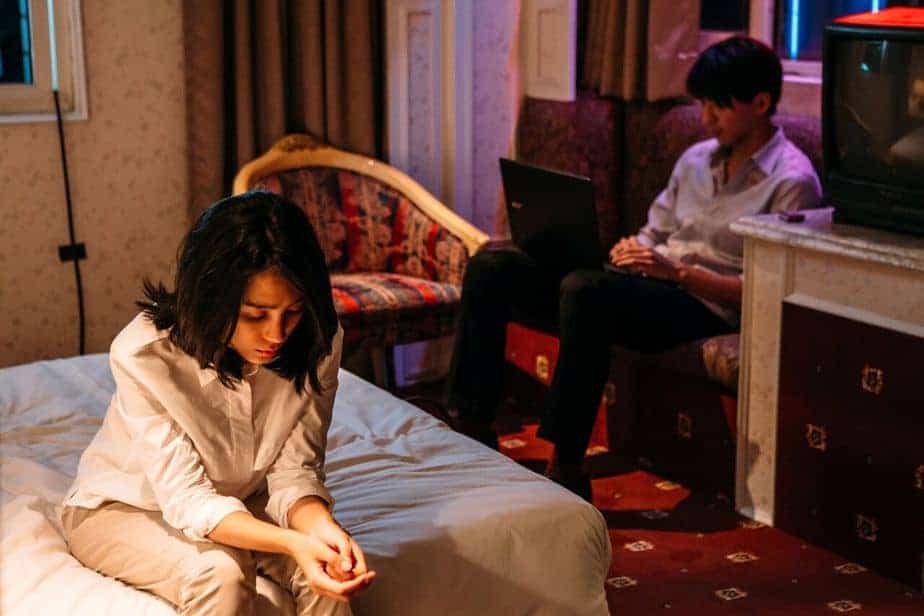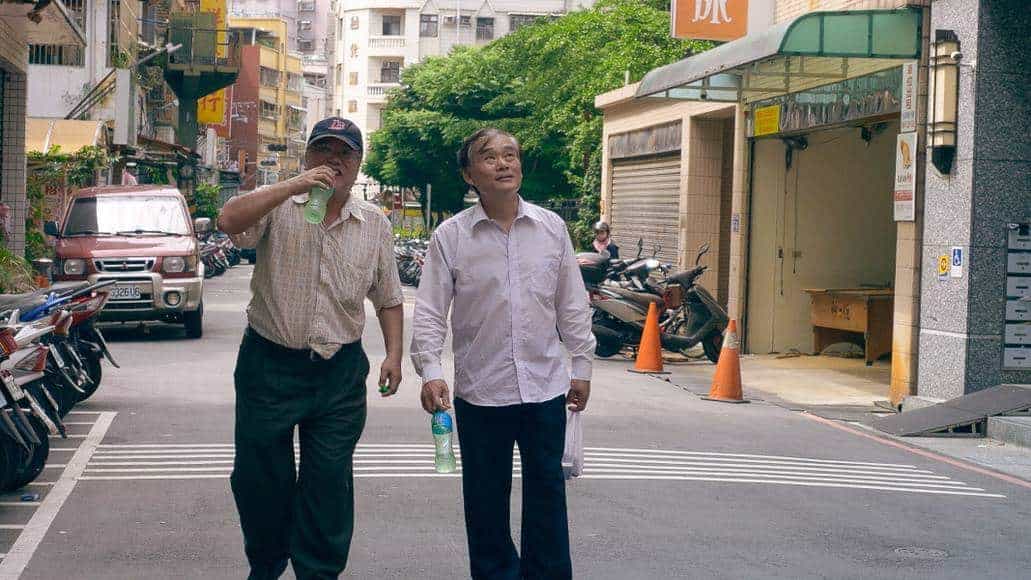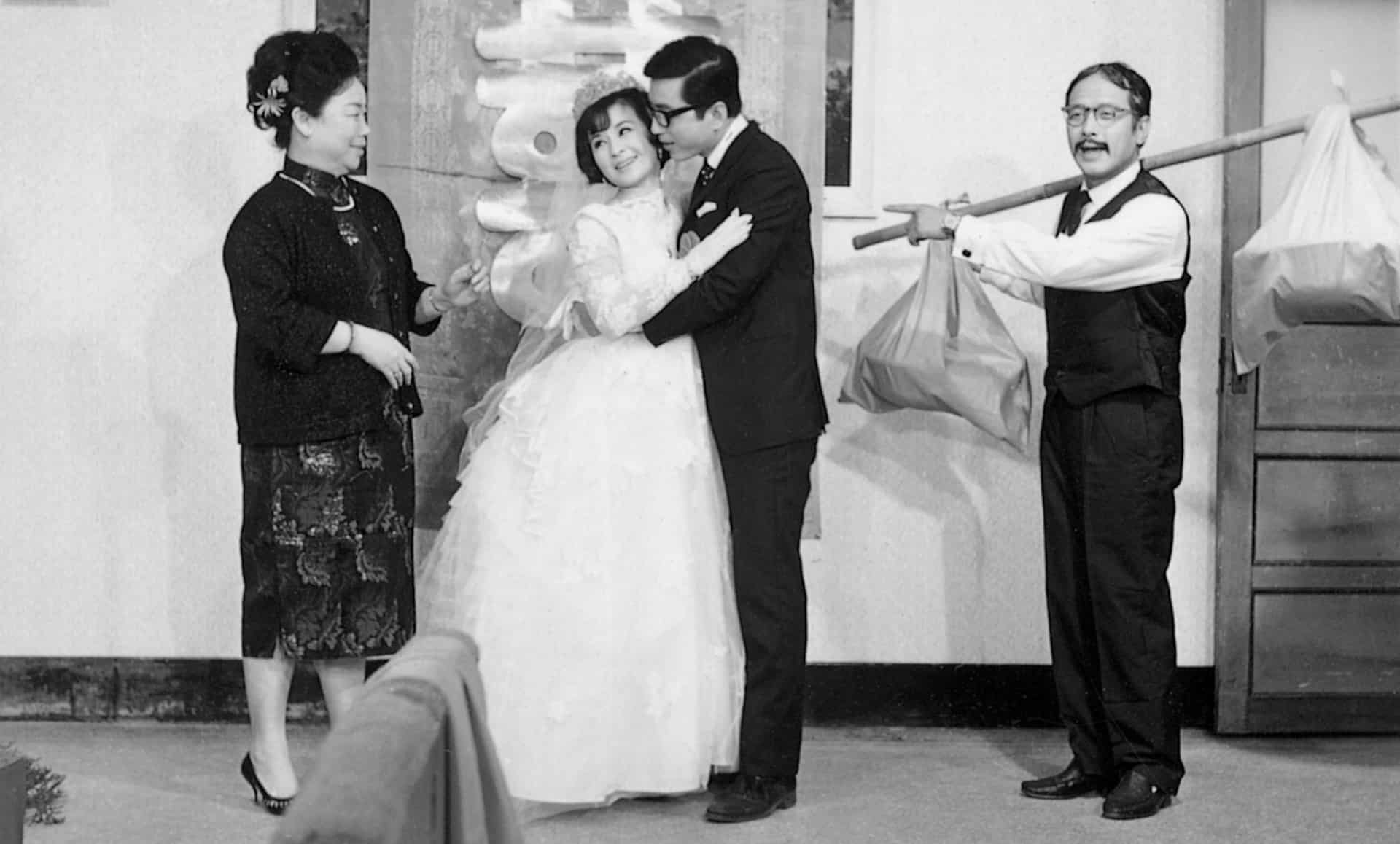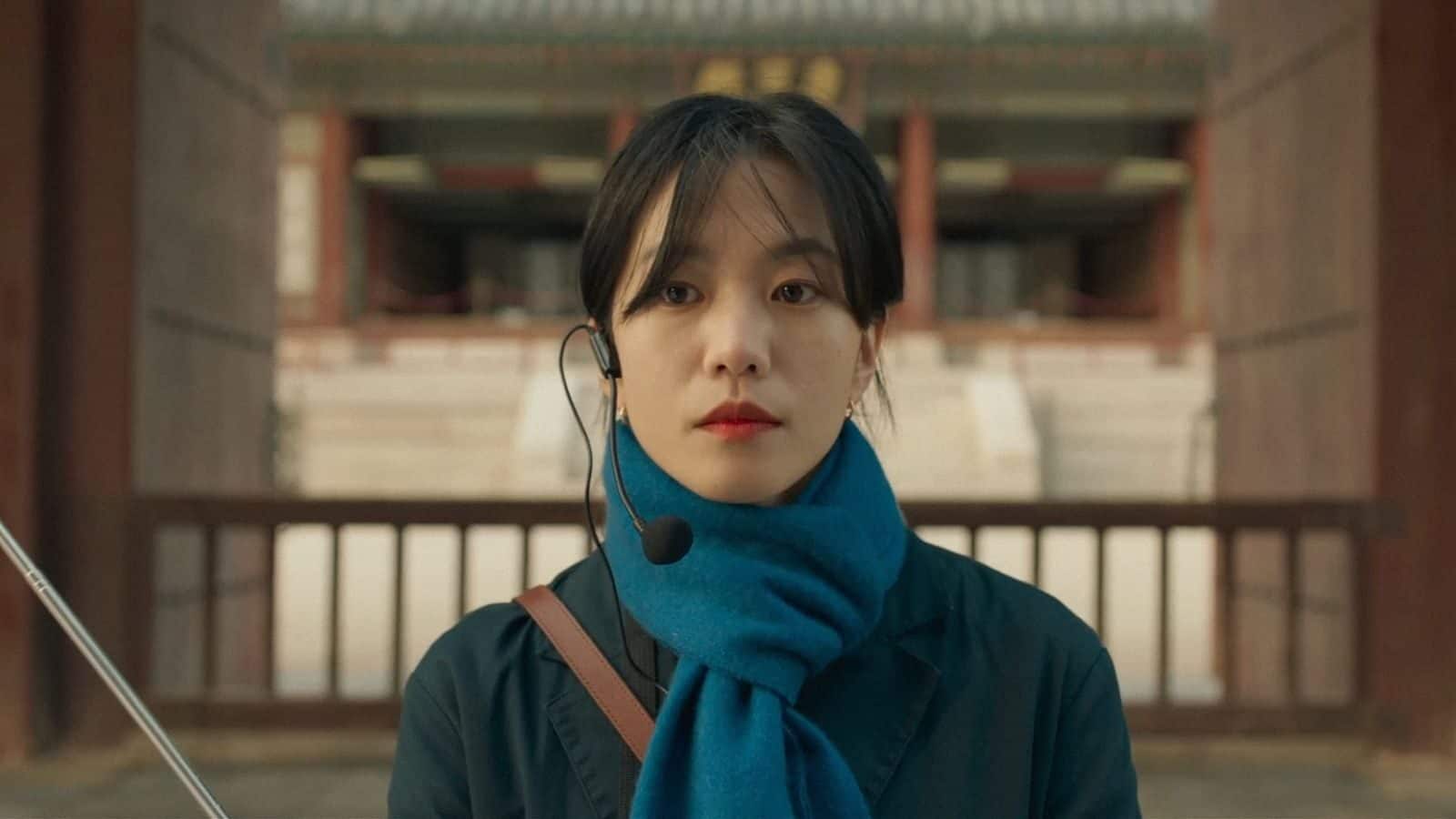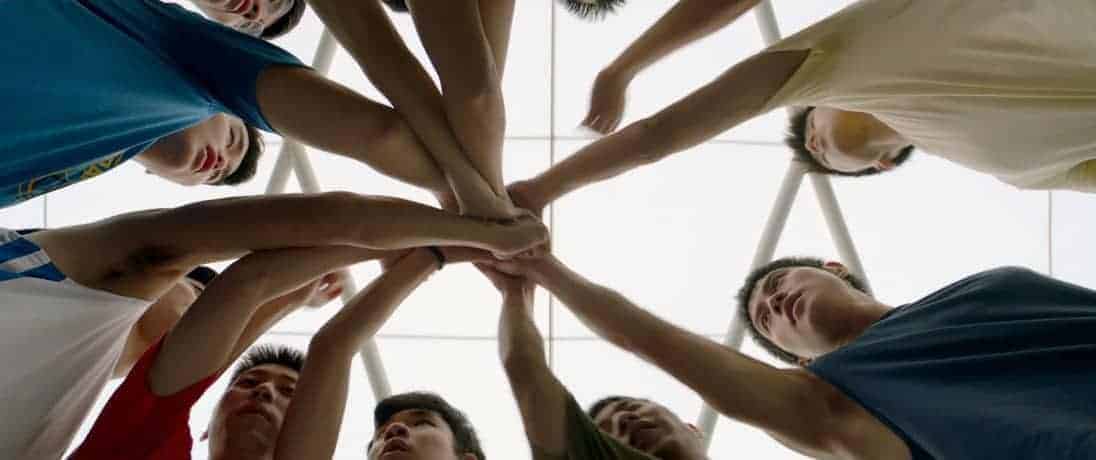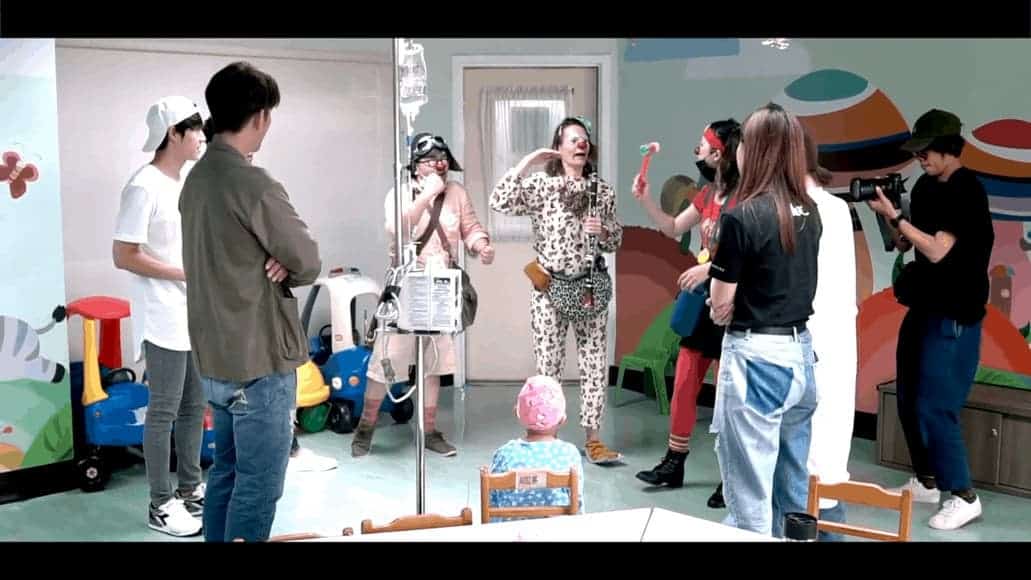“Hopefully when the morning comes, /
We'll be beautiful people again
With beautiful lives.”
One of the central themes of the cinema of Taiwanese director Tseng Ying-ting is human interaction and how outside factors from politics to economy influence it. In his new film “The Last Verse” he and his co-writer Shih Hong-ru focus on how globalization and growing democratization have influenced our world, but especially Asian countries. In his statement on the film the director describes how “the escalating poverty and hopelessness in the seemingly rich society” has become the thematic core of the film.
The Last Verse is screening at the 17th New York Asian Film Festival
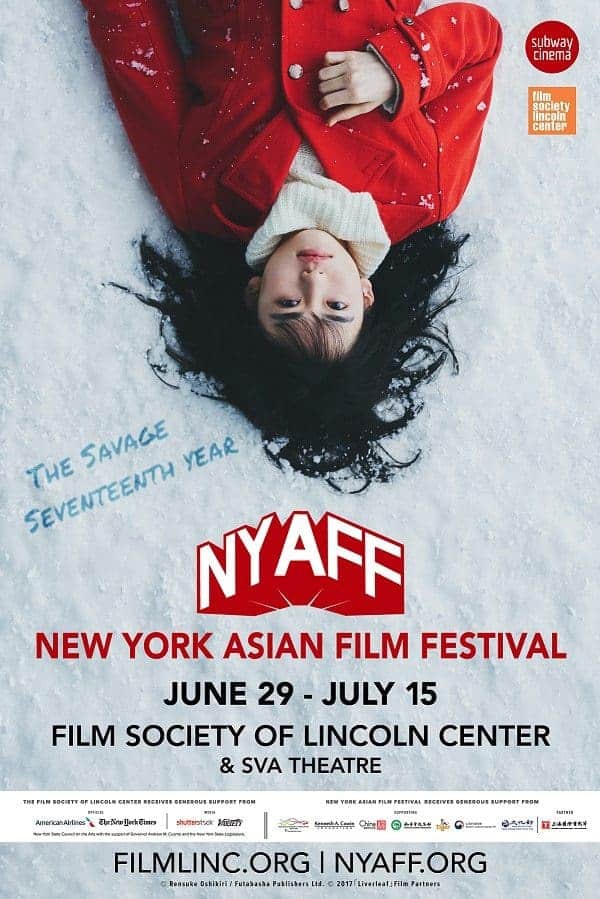
However, especially economic factors as well as immigration play a huge role in how many young people experience the world. As recession forces people to leave their homes and their families, both of these concepts have changed their meaning since they became more international. Taiwanese cinema, specifically the works of Hou Hsiao-hsien and Edward Yang, has had a tradition of showing the increasing influence of globalization on families, urban architecture and the concept of home. For Tseng Ying-ting, these experiences are closely linked to his biography, especially the demoralizing effect of poverty and how it stands in the way of seeing a brighter future.
Nevertheless, his emphasis on cinema as poetry shows Ying-ting in the tradition of the aforementioned directors. As “The Last Verse” was screened at the 2017 Busan International Film Festival, the director mentioned how his film appeals to the “inner voice” of the audience. While many may have forgotten about poetry, or abandoned it from their lives, its “voice” still lingers within us all. In combination with the themes of the film, the director hopes to ignite a sense of beauty, but also hope in the audience to “face the future with courage”.

In the summer of 2000, Shih Ren-jie (Fu Meng-po) and Lee Xiao-ping (Wen Chen-ling) meet for the first time. Over the course of a few hours, the two discover their affection for one another and become a couple. While Ren-jie fulfills his military duties, Xiao-ping studies. Both hope to be able to live together in a flat of their own once Ren-jie has found a job. However, their dreams are threatened by the debt of Ren-jie's father, with whom his son already had a difficult relationship. And as the collectors demand the son to pay the debt of his father, their love is tested, as they face a potential life-changing decision.
The narrative of “The Last Verse” is divided into six segments, each of which set in a different year, beginning in 2000 and ending in 2016, and under a different title suggesting the state of the characters' relationship. Of course, in the summer of 2000, at the start of a new millennium, the images are brightly lit, using mostly natural lighting, fitting to the general sense of levity, idealism and playful silliness. Consequently, the first meeting of Ren-jie and Xiao-ping plays out like a traditional teenage romance, including the tentative first looks, cheesy pick-up lines and reciting of poetry.
In the end, this feeling of lightness is something which defines this segment of the story, this precious puzzle piece of memory. However, the perfection of the moment, the laughter of youth, the music, the forest and the water surrounding them seems to good to be true. Interestingly, “The Last Verse” embraces this quality of one's memory, the treacherous aspect of nostalgia, since the moment is not only irreplaceable but also constitutes an ideal the characters strive for. This sense of the world in their hands, the future shapeable and rich in promise is locked within their consciousness defined by a creeping feeling of finality.

Despite these almost cliched images of youth and later on the melodrama of the characters' relationship, this awareness never fully disappears from the film. For example, in many of the dramatic scenes, Stanley Liu's camera chooses a more distant approach, showing the action from afar rather than closing in. In his review of “The Last Verse”, writer Nathaniel Imel remarks on how the camera “invites us to search for reasons” for the event, the grief, the cruelty and the failure of the ideals of youth. Perhaps the most devastating feature of the story is how this optimism and hope is continuously crushed and overtaken by reality, while both protagonists fight to cling on to these concepts.
At the same time, the script emphasizes the universality of this story and these feelings. Each segment follows the development of the economic and political landscape of the country with radio or television features about elections or similar events heard in the background in some scenes. Even though the voices are far away, their echoes can still be felt in the reality of people; for example, when Ren-jie struggles at his job in real estate. The promises of growth and progress are juxtaposed to the increasing desperation and feelings of failure which slowly creeps into the film.
Consequently, the dissolution of ideals is followed by the suspension of social unity, the breaking up of social bonds. In images reminiscent of the works of Ingmar Bergman, the moments of Ren-jie and Xiao-ping exchanging looks become rare until it seems as if they are avoiding each other, the reality of the other person. Thanks to the passionate performances of Meng-po and Chen-ling, the melodrama of these scenes remains captivating for the audience, even though one questions, quite early on, the chances of a happy ending. But then again, hope also is one of the elements of this film.

“The Last Verse” is a film about idealism, about hope and forgiveness. Supported by a great cast and fitting cinematography, the film manages to avoid the pitfalls of the melodrama, creating a compelling and touching story. Even though the amount of misery and suffering might be overwhelming at times, there is also a sense of hope which never leaves the frame, never leaves the reality of the characters. Because no matter what the consequences are, the future is still in our hands, the choice is still ours.
Sources:
1) http://www.reelasian.com/festival-events/the-last-verse-2/, last accessed on: 06/30/2018
2) Director's statement
https://filmfreeway.com/898694, last accessed on: 06/30/2018
3) Imel, Nathaniel (2017) “The Last Verse” Makes a Powerful Impression at San Diego Asian Film Festival
http://triton.news/2017/11/last-verse-makes-powerful-first-impression-san-diego-asian-film-festival/, last accessed on: 06/30/2018
4) MacDonald, Patrick (2018) Interview with director Tseng Ying-ting and actor Fu Meng-Po
http://www.hollywoodchicago.com/news/28374/interview-the-last-verse-at-chicago-s-asian-pop-up-cinema-on-march-28-2018, last accessed on: 06/30/2018
4) 2017 BIFF Interview with director Tseng Ying-ting
https://www.youtube.com/watch?v=1r5EMMqWm_E, last accessed on: 06/30/2018


